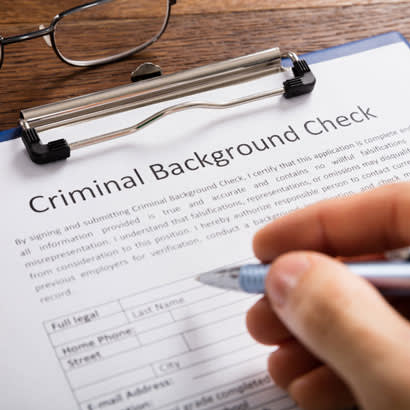
What is a background check? Simply said, it's the compiling of public records associated with someone's criminal or civil history. Because it's public data, these records are actually a commodity and accessible in some way (electronically or on-site) to anyone. Knowing this, you could assume all background checks are the same; but they're not. In the United States, there are 3,144 counties that contain 5,400 courts. Unfortunately, there is no standardization to how data is reported or what is required for criminal records, which makes it easy to miss criminal records and make mistakes when doing a background screen. So, it's important to do a regular audit of your screening practices to prevent risk and ensure safety.
Here's five things to consider:
1. How healthy is your data? Most information received by states is through county records. Ideally, the information would be correct and complete; however, in many cases the records are either missing data or inaccurate. You’ll need to assess what screening methods you are using to get the best data from every state relevant to your applicants.
2. Are you searching counties based on an applicant's Address History Trace? Searching counties based on your applicant's residential history is the first step of a reliable screen. Don't depend on a "national" database to find county level offenses, as a database only contains records from about 50 percent of U.S. courts and may not contain the most up-to-date information.
3. Should you add a federal search? Federal crime records reside in different courts than regular criminal offenses, so it's necessary to add this as a search. Why may this be a good idea? Federal crimes include white collar crimes, so if the applicant has access to financial records, this may be a good search to add.
4. Are you screening everyone with access to your organization? What about volunteers, contractors or others? Shouldn't they be screened in the same way as your employees? Consider making adjustments to your screening process to ensure the safety and security of all parties.
5. Are you rescreening? A background check is only as good as the day it was processed. It can't foresee future transgressions. You may have a policy in place to self-report, but most employees are too concerned with the repercussions to confess. There could be criminals on your company's payroll right now. Rescreening can help mitigate risk by informing you of any new arrests or convictions since the person was hired. We greatly urge you to rescreen your employees.
When it comes to background checks, it’s important that you’re always getting the full story. Inaccuracies in reports cannot provide the detail you need when making a hiring decision or preventing a dangerous person from becoming a volunteer. When records or pertinent information is missing from a record, it becomes challenging to make effective hiring decisions. Make sure you’re getting the best data possible from as many sources as possible ensures you’re getting the full story.
With the summer fast approaching, it's a great time to review your screening policy! NRPA is partnered with Background Investigation Bureau (BIB) to offer NRPA members quality background screenings at a discount price. You can email BIB or give them a call at 877.439.3900.

